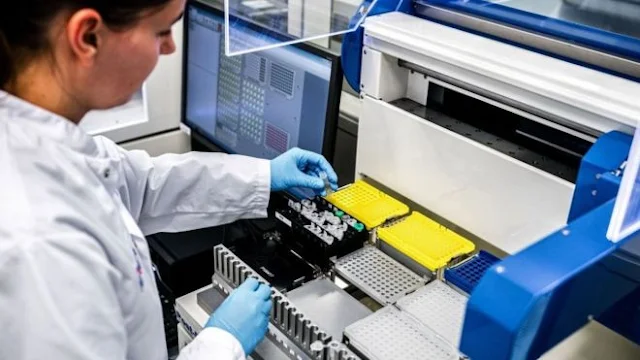Coronavirus: how to treat patients diagnosed with covid-19
These are the figures that as of Wednesday March 4 reflected the scope of covid-19, the infection that emerged in China at the end of last year.
As their vaccine develops, something that could take months, several countries try treatments that combat it.
These are drugs used in other conditions that due to their composition could be useful for this new coronavirus.
Most of these drugs belong to the group of antivirals and in countries such as China or Spain, cases have been reported where they have been effective.
Gustavo Reyes Terán, head of the Coordinating Commission of National Institutes of Health and High Specialty Hospitals of Mexico (CCINSHAE), reported last Tuesday his "interest in two drugs, hydroxychloroquine and remdesivir, which have proven to have an activity against the virus" .
However, the Centers for Disease Control and Prevention in the United States (CDC) and medical authorities consulted by BBC Mundo highlight that to date there is no approved effective treatment and that those administered are still in the experimental phase.
The World Health Organization (WHO), on the other hand, although it has not endorsed any specific and effective medicine against the pathogen, it did publish a list of dozens of compounds that alone or in combination could strengthen the immune response of patients in the most serious cases.
But the effect of these drugs is still pending investigation.
Anti-inflammatory and antiviral
In mild cases or in its first state, the coronavirus causes symptoms similar to those of the flu or common cold. That is, cough, muscle and headaches, fever and runny nose.
In these cases, Spanish medical authorities consulted by BBC Mundo explain that the application of common anti-inflammatories such as paracetamol or ibuprofen are effective in treating some of the symptoms, but they do not attack the virus.
However, some of the countries most affected by the spread of the pathogen have used existing drugs to treat their patients.
According to a report published in the British medical journal The Lancet by Chinese scientists, Jin Yintan Hospital in the Chinese city of Wuhan treated up to 41 patients with a combination of the antiviral drugs ritonavir and lopinavir.
This treatment is used, for example, in HIV patients. According to the journal Science, these antivirals inhibited protease, an enzyme that both HIV and coronavirus use to multiply within the body.
The Lancet article refers to another study published in 2004 where this combination of drugs showed "substantial clinical benefits" in the treatment of patients with severe acute respiratory syndrome (SARS), another infection of the coronavirus family that caused an outbreak in 2003.
These drugs, together with beta interferon, were also administered to cure a 62-year-old patient at the Virgen del Rocío Hospital in Seville, in southern Spain, according to media reports.
Interferon beta has also been used in China and is produced by China and Cuba, according to the Chinese news agency Xinhua.
Similarly, the University of Nebraska Medical Center in the United States announced late last month that they would be clinically testing the efficacy of the antiviral remdesivir in patients with Covid-19.
According to the National Institutes of Health in the US, said drug is also being tested in China. This antiviral has already been used in the past to treat both SARS and Middle East respiratory syndrome (MERS), both from the coronavirus family.
Disrupt your life cycle
According to the journal Nature, at least 10 other clinics are testing the effects of chloroquine, a drug used against malaria and other autoimmune diseases.
"Most drugs in clinical trials inhibit key components in the coronavirus infection life cycle," the journal notes.
In this way, Nature expands, chloroquine blocks viral entry into the cell, lopinavir / ritonavir cell reproduction, and remdesivir inhibits RNA code synthesis.
Precisely, hydroxychloroquine (a compound similar to chloroquine) and remdesivir were the drugs highlighted by Gustavo Reyes Terán, head of the CCINSHAE in Mexico, to "define whether they have potential utility in treating the coronavirus".
Five cases have been confirmed in that country as of Wednesday, March 4.
Caution
Despite the clinical trials and the Reyes Terán press conference, the Pan American Health Organization (PAHO) calls for caution.
"We must wait for the results and methods to be confirmed, right now there is no treatment for the coronavirus," added Espinal, who insisted that the only official method of action available is the isolation of confirmed cases and the administration of assisted breathing in the most serious cases.










